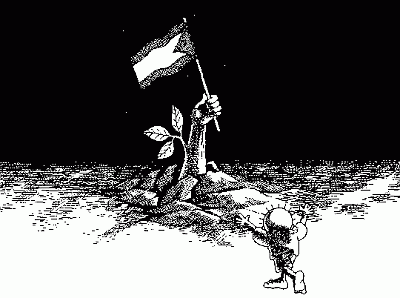Article taken from here
On May Day 2005, I marched with workers in Caracas. And the slogan workers were chanting at that time was "Without Comanagement, There Is No Revolution." Indeed, the main slogans for that May Day march, organized by the UNT, were "Comanagement Is Revolution" and "Venezuelan Workers Are Building Bolivarian Socialism."
We don't hear much of that anymore. We don't have masses of workers saying, "Without Worker-management, There Is No Socialism." Or, "You Cannot Build Socialism without Worker-management." Nevertheless, I think that we have to recognize the essential truth of this proposition.
Let me stress, though, that I'm not simply talking about worker-management as workers making decisions in individual workplaces. That's a necessary part of it, but it's not enough. When we talk about the goals of production, they should be the goals of workers -- but not in single workplaces. They should be the goals of workers in society, too -- workers in their communities. The goals which guide production should be developed democratically in both communities and workplaces and based on the concept of solidarity. In this respect, it's important to remember the different dimensions of what President Chávez has called the "elementary triangle" of socialism: units of social property, social production organized by workers, and production for the needs of communities. You can't separate those in socialism. As I've written in the new edition of Socialism Doesn't Drop from the Sky, "Without production for social needs, no real social property; without social property, no worker decision-making oriented toward society's needs; without worker decision-making, no transformation of people and their needs." . . .
There is an alternative to capitalism's effects on workers. It is the society that Marx described as characterized not by the capitalist's drive to increase the value of his capital but, rather, by "the inverse situation in which objective wealth is there to satisfy the worker's own need for development." That society oriented to the full development of human beings is socialism. It is the society where, instead of this crippling of body and mind of the worker and the alienation from the worker of all "the intellectual potentialities of the labour process," there is the re-combining of head and hand, the uniting of mental and physical labor. In this way, workers develop their capabilities through their practice. The partially developed individual is "replaced by the totally developed individual, for whom the different social functions are different modes of activity he takes up in turn." The combination of thinking and doing, Marx stressed, is "the only method of producing fully developed human beings."
That can't happen, though, when you work for capital, even if workers have complete control in the workplace. If the interconnection of workers in production "confronts them, in the realm of ideas, as a plan drawn up by the capitalist, and, in practice, as his authority, as the powerful will of a being outside them," how can workers develop all their capabilities? Without "intelligent direction of production" by workers, without production "under their conscious and planned control" --- in other words, without worker management, workers cannot develop their potential as human beings. Clearly, for "the worker's own need for development" to be the goal and to be the result requires an economic system quite different from capitalism, a socialist system which is the inversion of capitalism.
This brings me, though, to the question of worker-management and what we should learn from the efforts to build socialism in the 20th century. . . . What does that experience demonstrate?
1. When workers don't manage, someone else does.
2. When workers don't develop their capabilities through their practice, someone else does.
3. However much you may think you have banished capitalism from the house, when production is not based upon the relation of production of associated producers, sooner or later capitalism comes in -- first, through the backdoor, and then it marches openly through the front door.
Come back to that elementary triangle of socialism: units of social property, social production organized by workers, for satisfaction of communal needs and purposes. Of course, we know that this can't all be put into place at once. Of course, we know that it is a long process of struggle to develop each side of that triangle. But we also know that if we are not actively building each side, we inevitably infect the whole process . . . sooner or later.
How can you build socialism without real workers' management? How can you build fully developed human beings without protagonistic democracy in the workplace and community?
In my book, Build It Now, I quoted a line from an old song by Bob Dylan -- "he not busy being born is busy dying." So, I have to say to you how sad it is to recognize how things have changed since 2005. I look forward to being able to march once again with masses of workers on May Day chanting, "Without Worker Management, There Is No Socialism."
Michael A. Lebowitz is professor emeritus of economics at Simon Fraser University in Vancouver, Canada, and the author of Beyond Capital: Marx's Political Economy of the Working Class, winner of the Isaac Deutscher memorial prize for 2004, and Build It Now: Socialism for the Twenty-First Century, just published by Monthly Review Press. The text above is an excerpt from a talk, "Worker-management and Socialism," given at Centro Internacional Miranda on 26 October 2007 for a Conference "Worker Management: Theory and Experiences."
Subscribe to:
Post Comments (Atom)

No comments:
Post a Comment